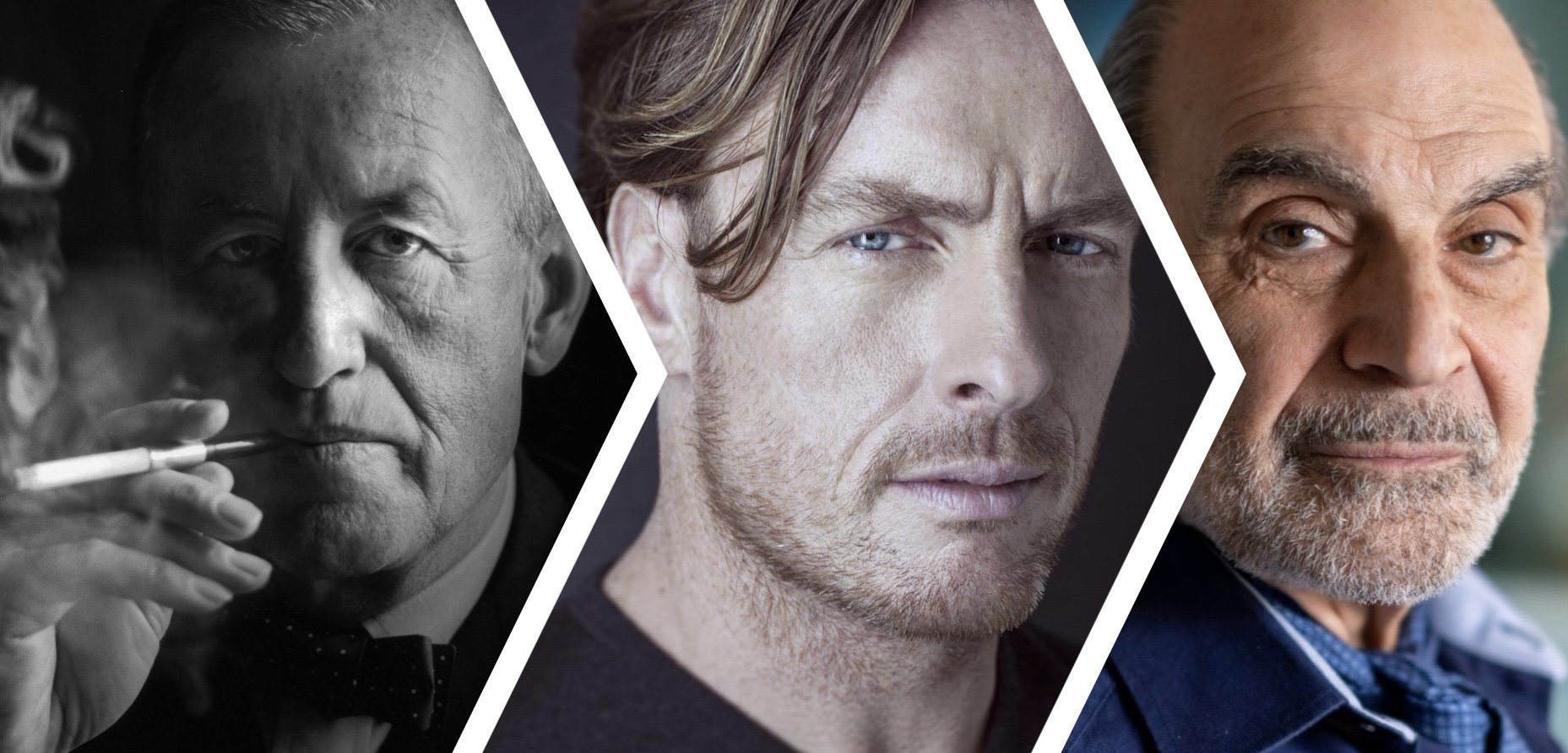Black Bag
/Transparent barriers—Michael Fassbender and Cate Blanchett in Black Bag
My spring break last week didn’t go as expected, but fortunately I got a break from my break Friday evening when I met a friend for Black Bag, a new spy thriller written by David Koepp and directed by Steven Soderbergh.
Black Bag concerns George Woodhouse, a British intelligence officer who specializes in interrogation and polygraph testing. He is happily and faithfully married to Kathryn, a fellow intelligence operative. When the film opens, he’s meeting a fellow agent who gives him a list of five names within the intelligence service who could be the party responsible for the leak of a secret program called Severus. All five are known to George.
One, Freddie, is an old friend, a chummy but loutish and borderline alcoholic lad. Freddie’s much younger girlfriend Clarissa works in signals intelligence and likes to play the innocent and aggrieved ingenue but is much more canny and manipulative than she lets on. Colonel Stokes is an upright, physically fit, perfectly composed agent in a relationship with Zoe, a service psychologist who regularly evaluates all of them. The fifth and last suspect, to George’s dismay, is Kathryn, his wife.
George invites the other four to a dinner party where he mildly drugs them and sets them up in a game designed to provoke uncomfortable conversations through which the four will reveal themselves. Tempers flair. George forms hunches. He also discovers a discarded movie ticket in his wife’s bathroom trash. The same night, the agent who provided him the list dies, poisoned in his own home.
By his late comrade’s reckoning, George had only a week to uncover the traitor and stop the leak of Severus, an act that could kill thousands. Now, with a few days already elapsed in feeling out the others and with new suspicions surrounding Kathryn’s sudden trip to Zürich, George, a meticulous, precise man, must act fast, improvising and bringing pressure to bear on the other agents, playing them against each other, bending the rules, and exploiting gaps in service procedure in an attempt to draw the traitor out without revealing what he’s up to. In doing so, and especially in trying to discover if Kathryn specifically is guilty, he makes a potentially catastrophic mistake.
I’m being vague on purpose. What Severus is, why it can’t be released, and what will happen if it does—these are secrets Black Bag only slowly reveals. The story’s steady escalation as George unwinds more and more of what is going on within the service is one of its joys.
Another is Black Bag’s emphasis on character, which is also where it shows its unusual place among recent spy stories. With the exceptions of George and Kathryn, the spies of Black Bag lead loose, dissipated, unfulfilling lives: drinking too much, taking drugs, putting up with too much from their significant others, cheating behind their backs. These are not just personal flaws—what used to be called sins—but security risks. George’s conspicuously faithful monogamy, which baffles his fellow agents, turns out to be the only reliable thing in their chaotic world.
This, along with some of the real-world implications of the Severus plot, gives Black Bag a moral dimension that, it not unique in latter-day Hollywood, is as unusual as George and Kathryn’s marriage.
George’s name, his chilly interiority, his hunt for a traitor, and even his eyeglasses might call John le Carré’s greatest character to mind, but Black Bag’s interest in personal relationships and the ways they are compromised by weakness feels much more like Len Deighton. In Deighton’s novels, tradecraft and technology play an important role but the personalities and beliefs of the characters are prior to and motivate the spy activity. Knowing a person’s true character proves as important as drones, satellites, code words, dead drops, and secret documents—a refreshing change from the tech- and action-heavy spy films that have proliferated in the twenty-odd years since The Bourne Identity.
Another nice change: Black Bag is lean and well-plotted, coming in at just over an hour and a half with not a wasted moment in it. The performances are excellent across the board, especially Michael Fassbender as George. Fassbender has been my choice for the next Bond ever since seeing him don a tuxedo for another tight, well-paced Soderbergh spy thriller, Haywire. He may never get to play Bond but his performance here is a classic. Tom Burke as the boorish Freddie, Marisa Abela as Clarissa, and Naomie Harris as Zoe, a lapsed Catholic who still acts on her beliefs, are further standouts, as is Pierce Brosnan in a small role as an intimidating and inscrutable intelligence chief.
With a smart, intense, and often funny script, good pacing and plotting, and excellent acting, Black Bag was a welcome surprise. If you enjoy spy drama as much as spy action and are looking for a thoughtful, suspenseful film that doesn’t overstay its welcome, this is well worth your time. And as the big-budget studio movies and superhero series show steadily diminishing returns, I hope to see more like Black Bag.













